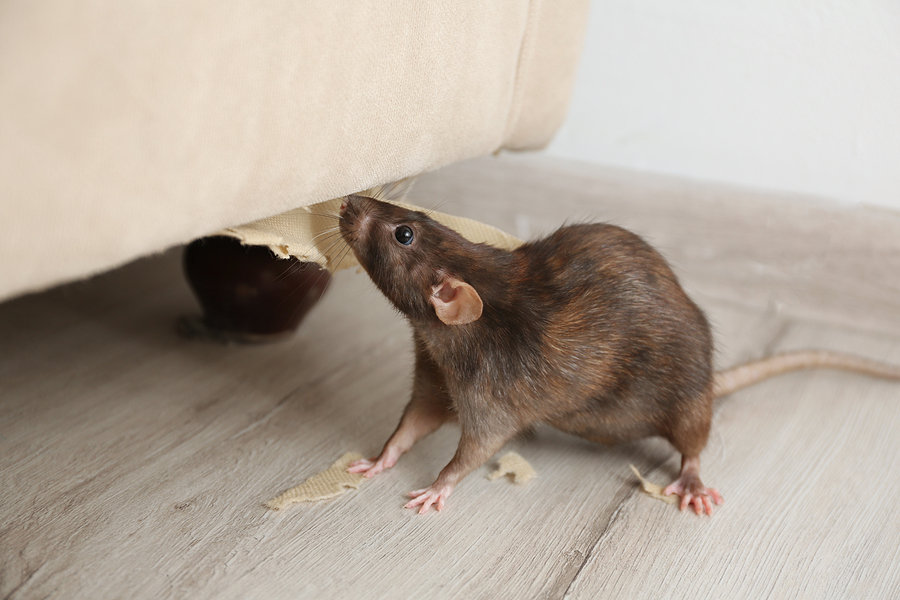The last thing any homeowner wants to deal with is pests. A household pest is any insect or animal that is commonly found in a household structure that can cause destruction to the property or to your health. While the occasional critter can make its way inside, routine occurrences indicates the likelihood of an infestation. Fortunately there are some DIY pest control tips you can use at home to help prevent these pests from taking over. Here are a few of the most common household pests and how to prevent them.
Ants
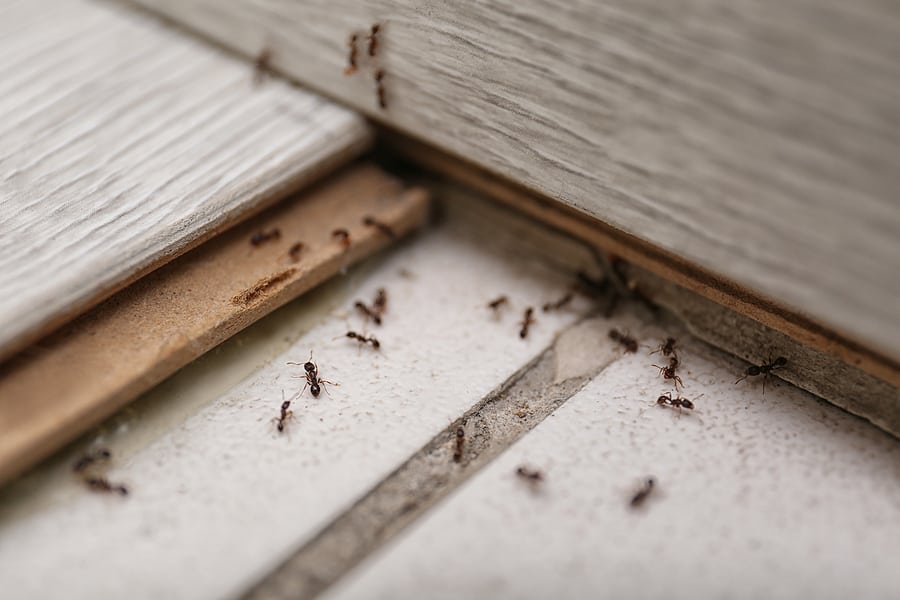
Most ants don’t cause any structural damage to your home (with the exception of carpenter ants). They are, however, the #1 nuisance pest in the United States. Ants are difficult to control because their colonies are so large. These pests typically come indoors in search of food and water and can usually be found near these sources in your home – especially in kitchens and bathrooms. Prevent ants by:
- Keeping your home clean.
- Wiping countertops daily.
- Cleaning up crumbs and spills immediately.
- Cleaning appliances regularly.
- Emptying trash daily and keep trash containers clean.
- Keeping food in sealed containers.
- Getting rid of overripe fruit.
- Repairing leaky pipes.
- Keeping gutters clear.
- Keeping shampoo and soap containers sealed and clean.
- Sealing any exterior holes, gaps, and cracks.
- Trimming back trees and shrubs from the house.
- Clearing your yard of debris.
- Using screens on doors and windows.
Birds

Birds are not usually considered nuisance pests but their nests can obstruct common areas of your home and their droppings can contaminate or damage other areas. Birds usually enter your home in search of food and shelter. Prevent birds by:
- Using saltwater vs freshwater in fountains and water features.
- Not leaving pet food out overnight.
- Keeping grass mowed and hedges trimmed.
- Dismantling nests IF they are actively being built (bird nest removal laws prevent touching nests that are already built or occupied).
- Sealing exterior gaps, cracks, etc. as birds can use these to access attics.
- Hanging strips of aluminum foil from trees or other high places to deter birds.
- Installing predator decoys (like owls and snakes) to scare off birds, moving them frequently.
Cockroaches

Cockroaches are dangerous to humans as they are known to carry serious diseases and trigger both allergies and asthma. These pests multiply quickly, making them very difficult to control. Roaches will come into homes in search of food, water, and shelter, with them often found in kitchens, bathrooms, and laundry rooms. Prevent roaches by:
- Cleaning up crumbs and spills immediately.
- Throwing away or storing leftover food at night.
- Cleaning surfaces nightly.
- Rinsing food cartons before throwing them away.
- Emptying trash nightly.
- Storing food and pet food in airtight containers.
- Not leaving pet food and water out overnight.
- Using plastic storage rather than cardboard.
- Getting rid of old newspapers and magazines.
- Sealing any exterior gaps and crevices.
- Using weatherstripping.
- Using stoppers or metal baskets in sink drains.
- Repairing leaks.
- Caulking around tubs and sinks to seal them.
- Hanging wet towels up after use.
- Keeping kitchen sponges dry and not storing them on the counter.
Termites
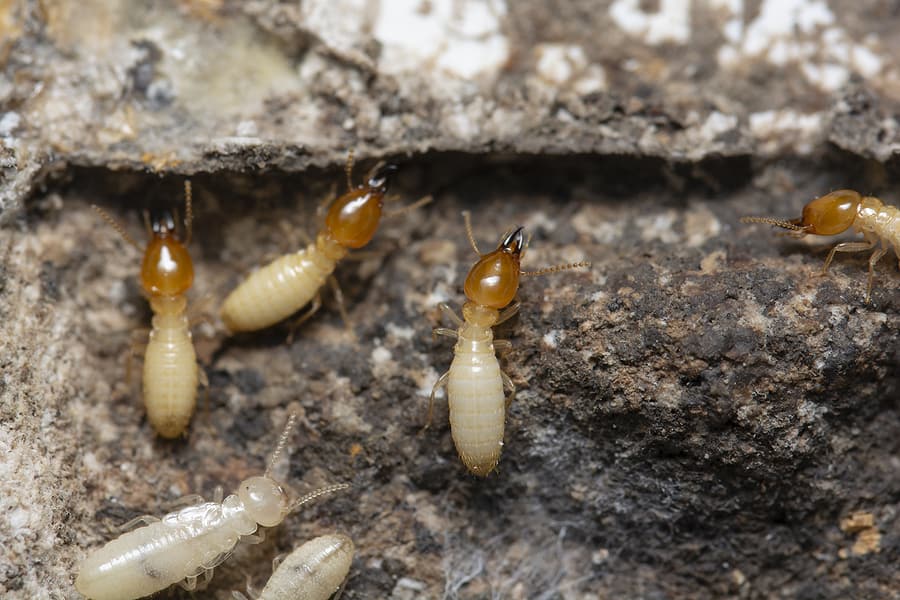
Termites are known as silent destroyers, eating wood from the inside out and going undetected for long periods of time. Common signs of termites include swarms; mud tubes; discarded wings; discolored drywall; peeling paint; wood with a hollow sound when tapped; squeaky floorboards; doors and windows that stick; damaged wood; loose tiles; and buckling floors. Prevent termites by:
- Using concrete foundations when building your home.
- Covering exposed wood with sealant or metal barrier.
- Keeping soil around foundations dry.
- Keeping gutters and downspouts clear and functioning.
- Filling cracks in cement foundations.
- Filling in gaps around where utilities come into your home.
- Fixing leaks immediately.
- Keeping vents unblocked.
- Keeping landscaping trimmed away from the sides of homes and foundations.
- Not storing firewood next to the house.
- Getting an annual termite inspection.
Rodents
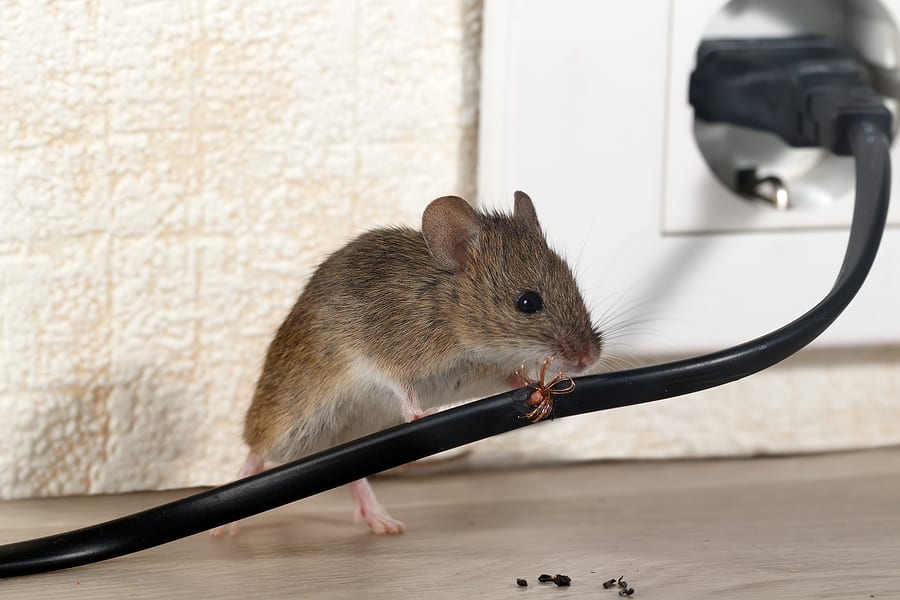
Rodents are common household pests and include rats, mice, squirrels, and raccoons. Rodents can cause significant damage to your property by chewing through electrical wires and insulation. They can also contaminate food and spread disease. Prevent rodents by:
- Using metal trashcans with tight-fitting lids.
- Storing pet food and birdseed in glass or metal containers with sealing lids.
- Picking up fallen fruit and birdseed from the ground.
- Removing standing water from bird feeders.
- Storing firewood away from the home and elevating it.
- Storing boxes in the garage off the ground.
- Storing food in containers.
- Cleaning up crumbs nightly.
- Sealing exterior openings.
- Keeping gutters clear.
- Screening attic vents.
- Screening windows and doors.
Centipedes and Millipedes
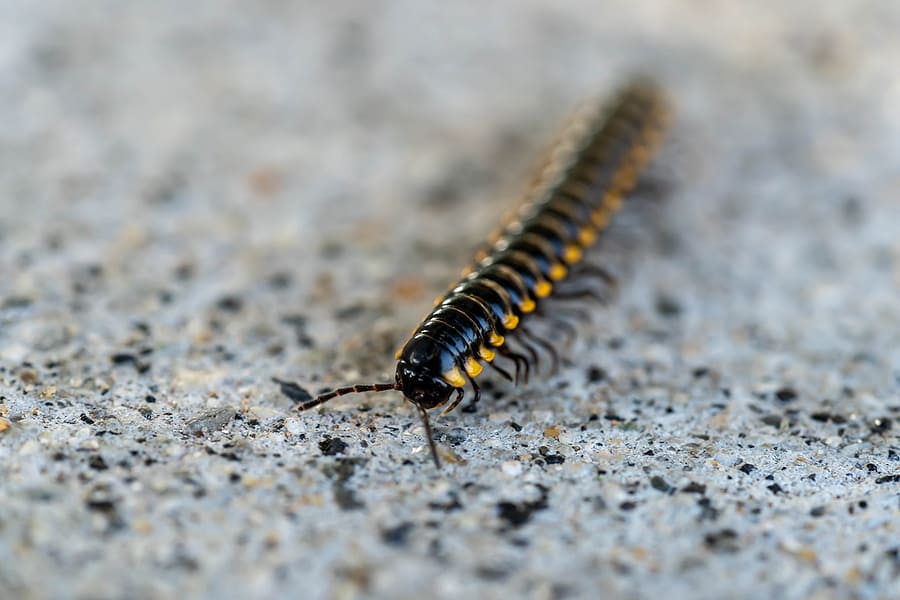
Centipedes are arthropods with 14 or more body segments and one pair of legs per segment. Millipedes are also arthropods but they have 2 pairs of legs on their body segments. Neither of these pests are considered dangerous and don’t cause damage or spread disease. They can, however, be annoying if they infest in large numbers. Both of these pests thrive in moisture-rich environments. Prevent centipedes and millipedes by:
- Repairing leaks.
- Removing standing water.
- Removing moisture-holding ground cover or mulch that is close to foundations.
- Storing firewood away from the house and elevating it off the ground.
- Inspecting firewood before bringing it in the house.
- Sealing doors and windows that are low to the ground to prevent entry.
Spiders
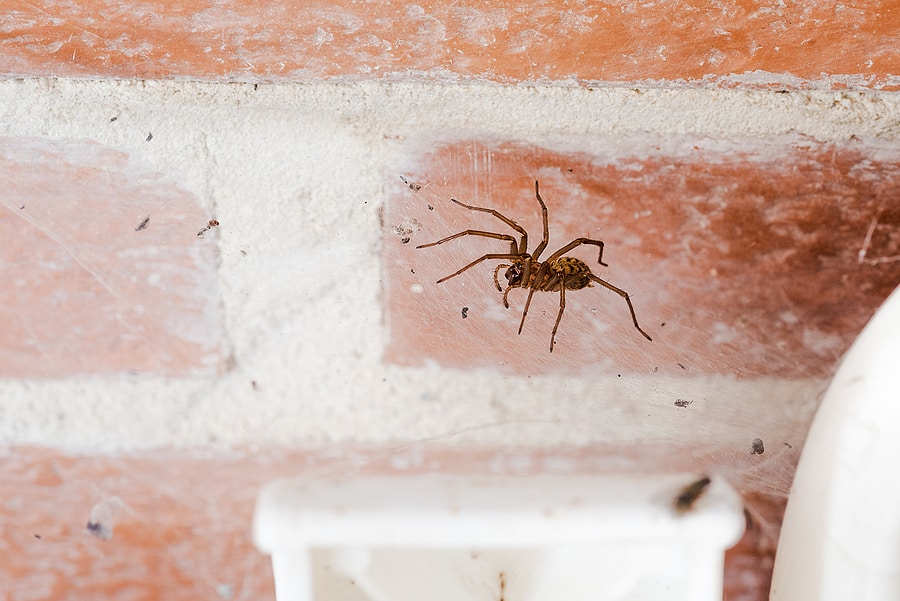
Although there are a few venomous spider species in our area, most spiders that make their way into your home are harmless (and even beneficial by eating other pests)! Prevent spiders by:
- Sealing exterior cracks and crevices.
- Screening doors and windows.
- Vacuuming up spiders and eggs found in your home.
- Brushing down webs with a broom.
- Decluttering your home.
- Vacuuming and dusting frequently.
- Keeping shrubs and plants trimmed back from the sides of the home.
- Keeping mulch a few inches away from foundations.
- Using plastic rather than cardboard storage.
The key to household pest control is prevention. By taking these steps early, you can head off an infestation before it starts. If you have a problem with any household pests, contact your local pest control company for a free evaluation and comprehensive treatment plan.

